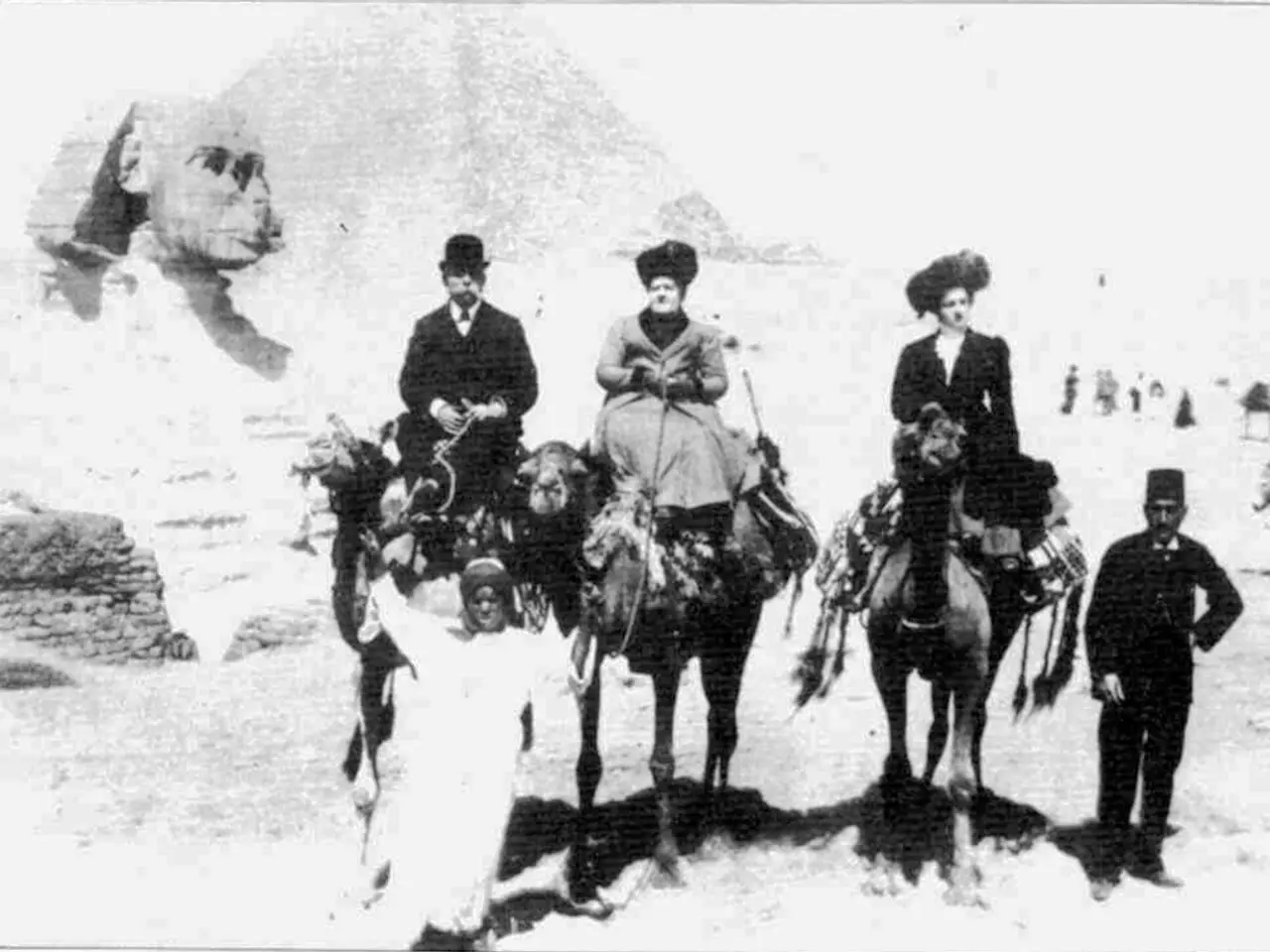Comedian Bassem Youssef Discusses Arab Spring in Interview as Featured Author
In the heart of Egypt's revolutionary era, a heart surgeon turned satirist named Bassem Youssef rose to fame with his groundbreaking television show. Within just five weeks of posting his first videos, Youssef secured a contract for his show, which would become known as "The Jon Stewart of the Arabic World."
The show, a unique blend of comedy and sharp political critique, emerged during the period of upheaval in the Arab Spring. It provided a critical, humorous perspective on Egyptian politics and society at a time of major upheaval, filling a void where political satire was rare in the region. Youssef's program became the most popular television show in Egypt's history, offering a platform that mixed comedy with sharp political critique during a revolutionary era.
Youssef used his show to tell the story of his life amidst Egypt's revolution, intertwining his narrative with major political figures such as Mohammed Morsi and Abdel Fattah el-Sissi. His work went beyond mere entertainment: it educated the public on social and political issues, exposing contradictions and complexities in Egyptian society and governance.
The show reached 30-40 million viewers per episode, a testament to its impact during a time of political uncertainty and repression following the initial hopes of the Arab Spring. However, after one episode criticizing the army, Youssef's show was canceled. Undeterred, Youssef moved to another channel, producing 16 more episodes, but was eventually forced to flee Egypt in November 2014 following legal threats.
Youssef's story demonstrates the essential role of satire in speaking truth to power. His sudden fame made him feel awkward and unworthy of the attention, a feeling that was toxic and unnatural for him. When the military took power, Youssef found himself walking on eggshells. Yet, he continued to use his platform to challenge the status quo and offer a form of social resistance.
Today, Youssef sees hope in the democratization of media through social platforms. He believes citizen journalists can serve as a necessary counterweight to traditional media's failures. The long-form podcast format, in particular, represents a promising avenue for deeper, more nuanced discussions.
The Arab Spring began in Tunisia when a fruit vendor named Boazi self-immolated in protest. This act led to the removal of Ben Ali, Tunisia's dictator of 20 years. The political upheaval of 2011 created a brief window where power was more evenly distributed in Egypt. During this time, Hosni Mubarak, who had ruled for 30 years, was overthrown, a period that is equivalent to a very short first term in the Middle East.
Youssef's satirical show served as a powerful cultural force that both reflected and shaped the political climate of Egypt post-Arab Spring. It stood out by blending humor with political activism, helping to sustain public engagement and dialogue during a pivotal historical moment. Youssef's story, and the impact of his show, continues to resonate today, offering a reminder of the power of satire in challenging the status quo and fostering critical discourse.
Sources: [1] Al Jazeera. (2013, February 14). Bassem Youssef: The Jon Stewart of the Arab World. Retrieved from https://www.aljazeera.com/programmes/talktojazeera/2013/02/201321415132178884.html [2] The New Yorker. (2013, October 28). The Revolution Will Be Televised. Retrieved from https://www.newyorker.com/magazine/2013/10/28/the-revolution-will-be-televised [5] The Washington Post. (2014, November 14). Bassem Youssef, Egypt's Jon Stewart, flees the country amid threats. Retrieved from https://www.washingtonpost.com/news/worldviews/wp/2014/11/14/bassem-youssef-egypts-jon-stewart-flees-the-country-amid-threats/
Please note that this article is generated by a model and may not be fact-checked or edited by a human.
- Bassem Youssef's show, popularly known as "The Jon Stewart of the Arabic World," offered a unique blend of comedy and political critique during a time of war and conflicts such as the Arab Spring, providing a humorous perspective on politics and social media discourse in Egypt.
- Today, Bassem Youssef sees hope in the democratization of media through social platforms, believing that citizen journalists can serve as a necessary counterweight to traditional media's failures, fostering critical discourse and shaping politics and entertainment on platforms like general news and social media.




